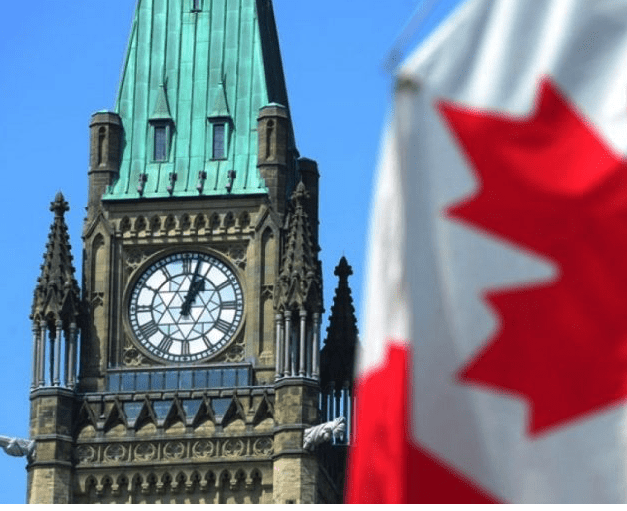The current state of the world is making me wonder if Canada can maintain its status as the world's most boring country.
And yes, at least when it comes to politics, Canada takes the gold medal when it comes to dullness.
Now, please understand me, I'm not saying Canadian politics is totally boring; to be sure, we've had our bits of excitement, such as the suspense we've all felt wondering what would happen if Conservative Party leader Andrew Scheer were to ever accidently run upon a Gay Pride Parade.
But my point is no major political party in Canada ever calls for anything that would overly rattle the cages of the status quo, they all have the same more or less wishy-washy policy offerings.
So unlike in Europe and America, where political hurricanes are sundering the connection between the ruling classes and regular people, the political climate here in Canada has remained relatively tepid.
Certainly in the last federal election, Scheer didn't emulate populist Donald Trump; NDP leader Jagmeet Singh looked like Ronald Reagan, when compared to Jeremy Corbyn, the UK's quasi-Marxist Labour Party leader, and Prime Minister Justin Trudeau, of course, is the poster child for the status quo.
Indeed, I'd argue that throughout its history Canada has always been a cautious, "pro-Establishment" country.
Heck, one of the reasons our country even exists is that our ancestors didn't want to take part in that radical political experiment known as the "American Revolution".
That "non-rocking the boat" tradition has remained strong ever since.
Oh sure, from time to time we've had "rebellions" and we've had to endure a few major outbreaks of separatist fever in Quebec, and sometimes bouts of populism have emerged in the West, but such insurgencies against the established order eventually run out of steam.
Simply put, Canadians are risk averse.
This is especially true, I think, in Ontario, where voters perhaps still feeling the effects from that time long ago when they elected Bob Rae's socialist NDP into power seem to instinctively reject any whiff of radicalism.
Ontario, keep in mind, steadfastly acted as a breakwater against the populist/conservative Reform Party (later renamed the Canadian Alliance) that in the late 1990s was flooding in from the West.
And perhaps Ontario is so risk-adverse because the media which dominates that province is also risk-adverse.
The Globe and Mail, the Toronto Star and especially the CBC, basically act as guardians of the status quo.
Any politician who dares to deviate even the slightest from standard political orthodoxy can expect to feel the media's wrath.
If you talk about supporting law and order, the media will dub you a Hitler-loving racist; talk about cutting the federal deficit, you'll be called a deranged Trump clone; oppose the carbon tax, you'll be labeled a planet-hating lunatic.
Essentially, just questioning the Establishment world-view is considered a sin.
So is it any wonder then, our party leaders tend to stay in the dull lane of politics?
This explains why, for instance, Conservative Party leadership nominee Peter Mackay seems to delete or clarify his tweets whenever anyone in the media complains about them.
Yet, I wonder if conditions in this country specifically in Ontario are changing in a way that might make it easier for politicians to assail the media and the Establishment.
The growing coronavirus pandemic, the collapsing stock market, the growing fears of recession, the illegal blockades, Megan and Harry moving to Canada, all of these might be taken as signs that the status quo isn't working anymore.
Indeed, a poll came out recently which showed that a whopping 69 percent of Canadians agree with the statement, "Canada is broken."
And if things get worse, if people start losing even more confidence in this country's institutions, then Canadians even Ontarians might be ready for a more radical approach from either the left or the right.
All it will take is for a smart political entrepreneur, willing to exploit the situation to emerge by saying "I'll fix what's broken".
At that point, things in Canada will likely get a lot less dull.
Photo Credit: Neorhino.ca






